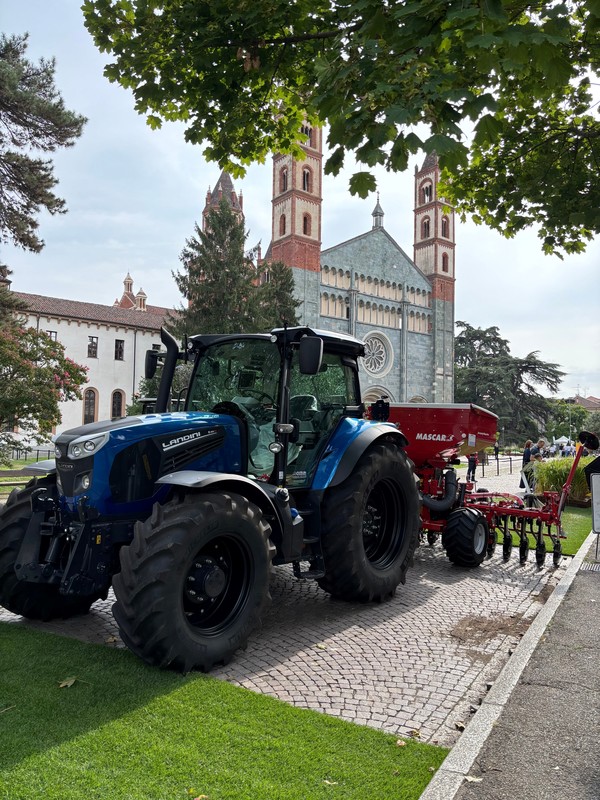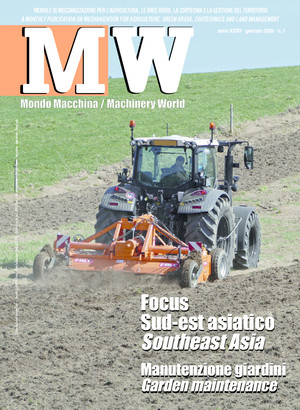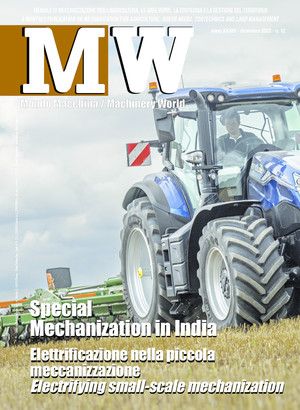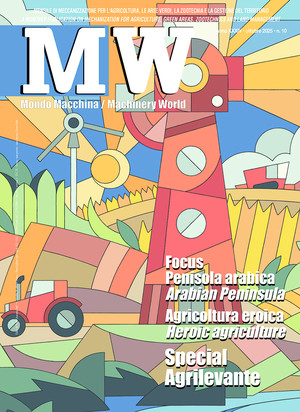
Risò: cutting-edge technologies for an ancient crop
FederUnacoma participated in Risò, the International Rice Festival which took place from 12 to 14 September in Vercelli, with an exhibition of specialized machinery and a conference on the new technological frontiers of rice cultivation
The first edition of Risò, the international rice festival held in Vercelli, described rice cultivation as history and tradition, as well as research and technology in the field. FederUnacoma, the association of agricultural machinery, equipment, and component manufacturers, was at the event with a display of latest-generation rice-field machinery. Combine harvesters with special harvesting heads, machinery for creating and maintaining embankments, leveling machines for evenly distributing water throughout the rice paddy, advanced digital systems, and even an autonomous robot for mechanical weeding - displayed by FederUnacoma at the event - are just a few examples of how mechanization can now cover every stage of rice cultivation. The agricultural machinery industry has long been present in growing areas - as evidenced by the retrospectives organized as part of Risò, with displays of historic machinery - but it continues to invest in research and the development of increasingly advanced systems. This was discussed during a conference organized by FederUnacoma in the afternoon of the 12 september, entitled "Technical innovation in rice fields: from machinery to design and monitoring systems, how the approach to rice cultivation is being modernized”. In his speech to open the meeting, Alessio Bolognesi – from the Technical Office of FederUnacoma – discussed how the data from sensors and the systems with which the most innovative vehicles are equipped are fundamental to tackling the challenges of modern agriculture. "Economic and environmental sustainability", Bolognesi explained, “is now entrusted to digital technologies and interoperability, meaning the integrated management of data from various sources. This technology allows us to combine all information of agronomic and agro-mechanical interest, and to connect agriculture with related and complementary sectors”. Lorenzo Iuliano, of the FederUnacoma Technical Department, gave a description of the machinery currently in use in rice fields. He offered an overview of traditional models and, above all, the more innovative solutions that are gaining ground in the sector. Starting with graders, where GPS technology combined with job-scheduling software is making field preparation easier and more effective, Iuliano moved on to describe the electrical power systems of the tools, which are also the subject of a pilot project in Piedmont aimed at investigating the advantages of this solution. The technology overview even included robots, autonomous vehicles specifically designed for rice paddy operations. The final presentation, given by Aurora Ghirardelli of the University of Padua, focused on specific applications of digital technologies, particularly systems for monitoring the salinization of coastal rice fields. The systems described by Ghirardelli are particularly utilized in the Po Delta, but can be used in any environmental context in which saline infiltration threatens cultivation.








